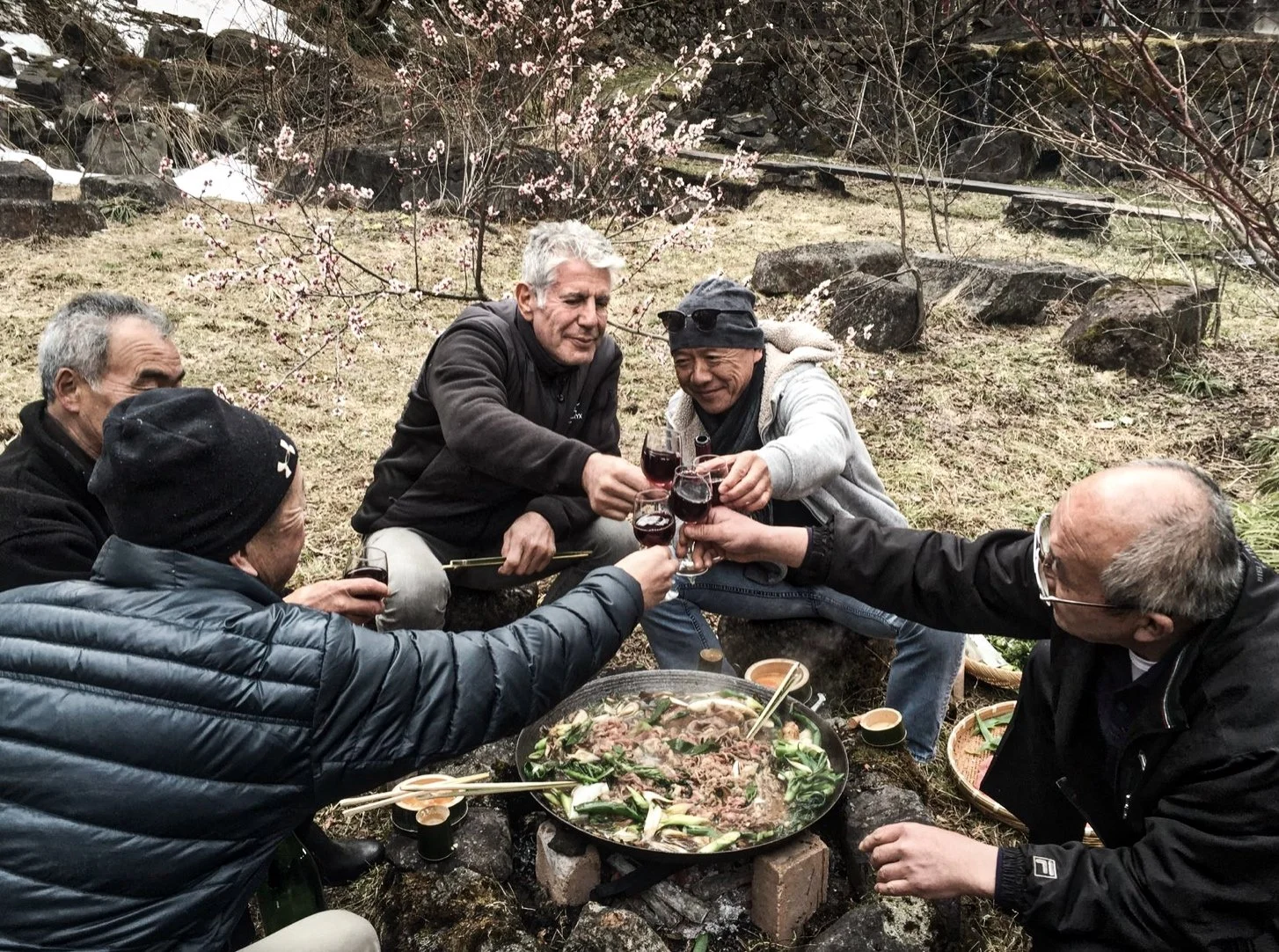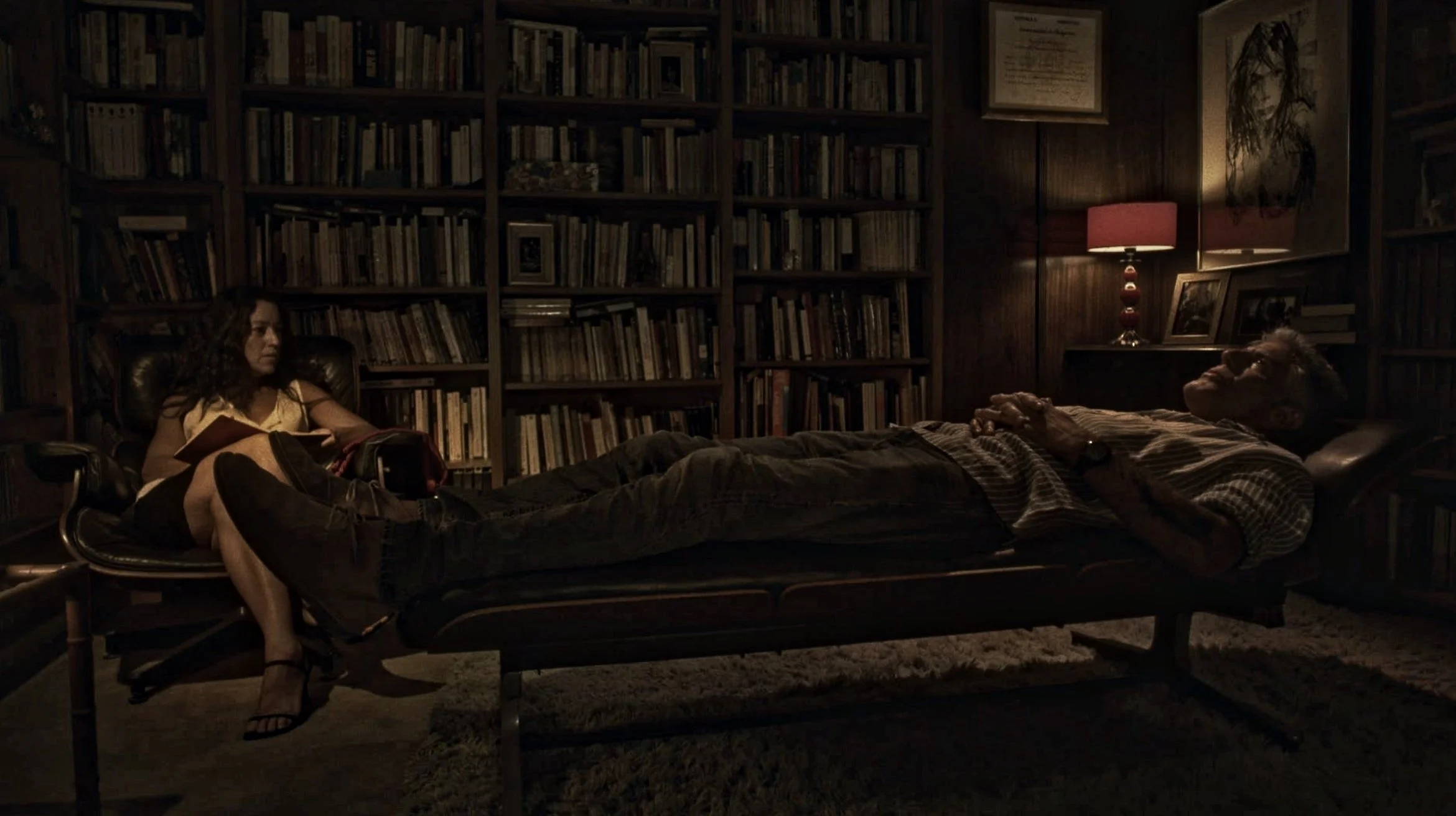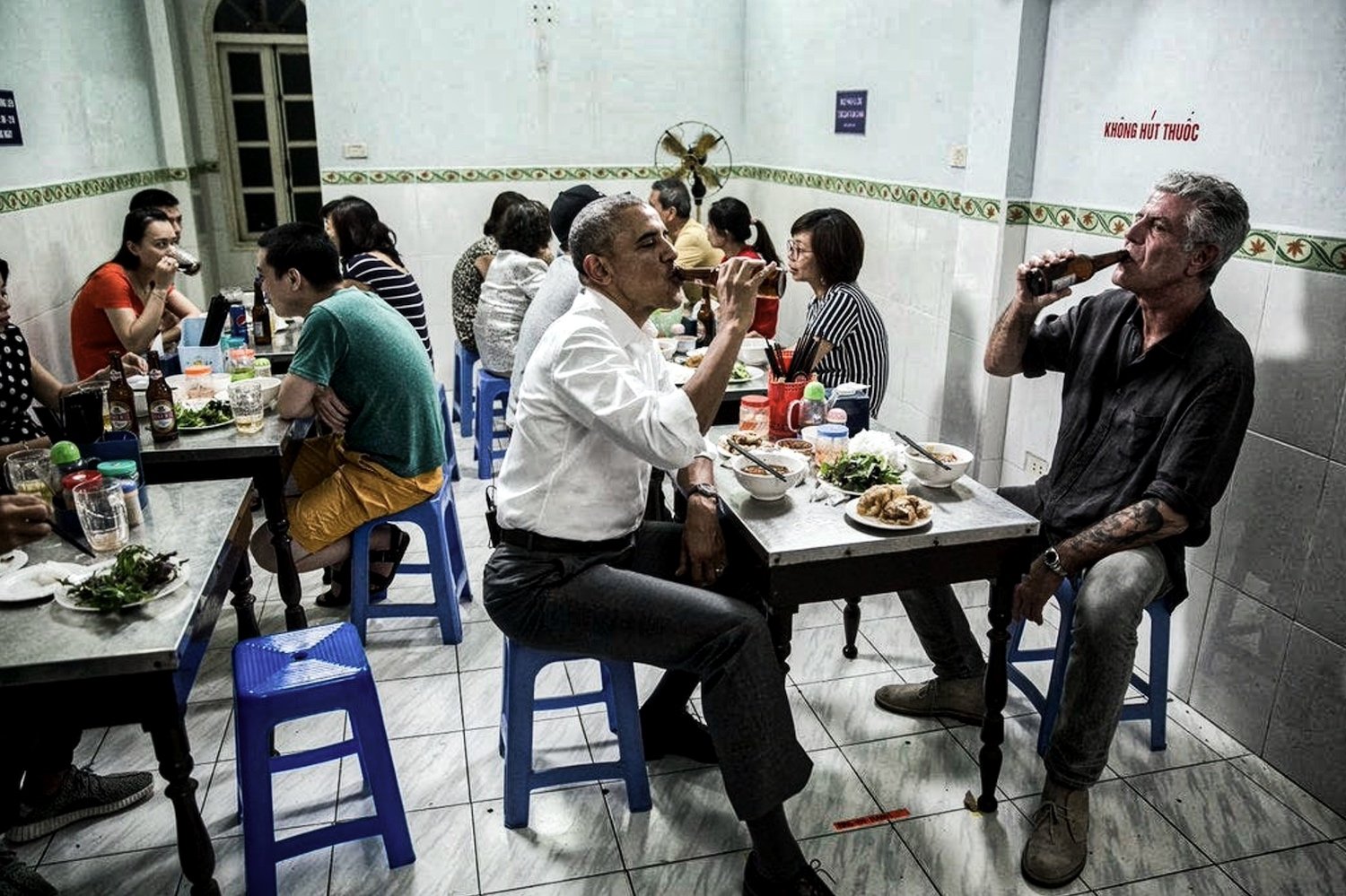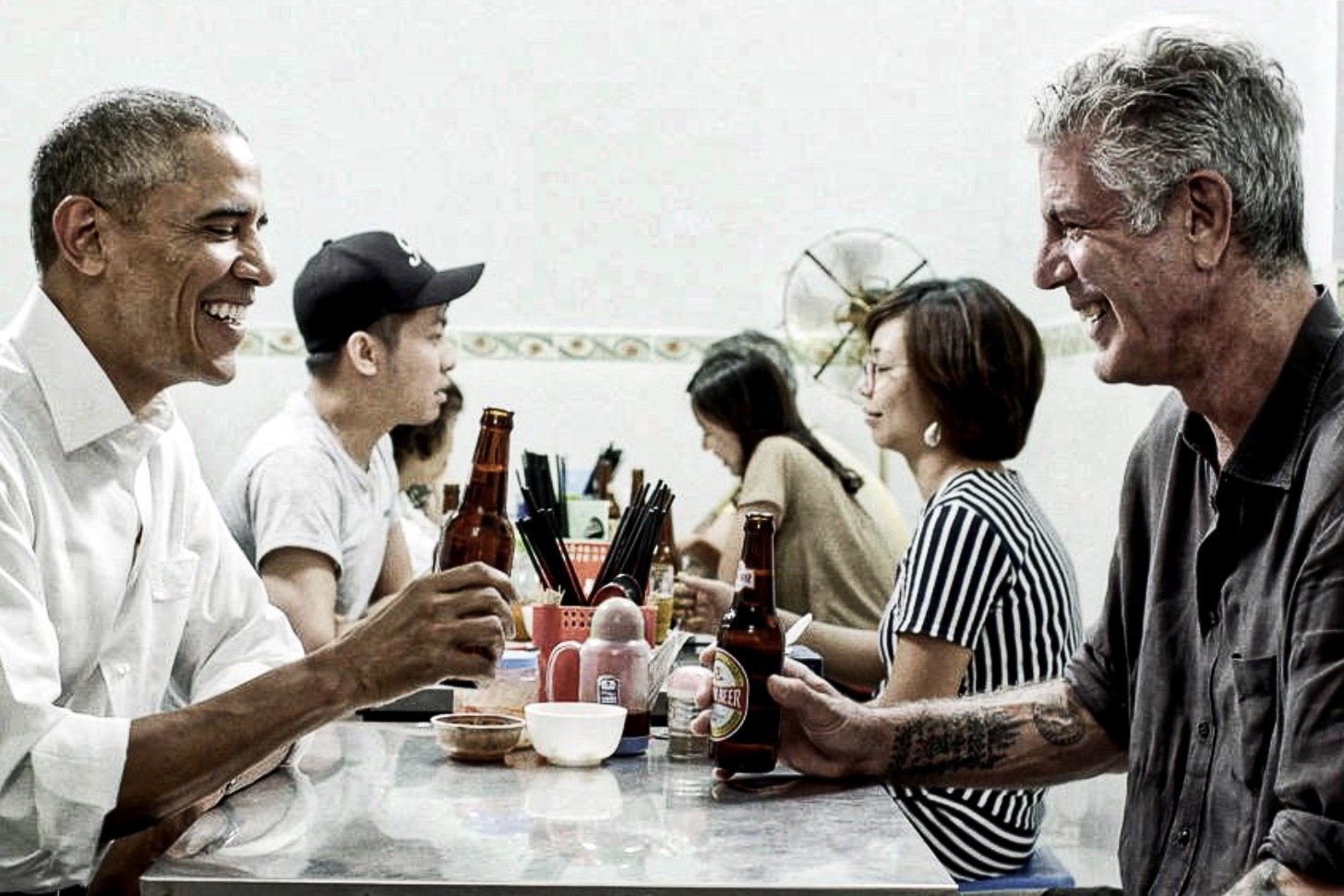“Outside tastes much better,” sushi chef Masayoshi “Masa” Takayama told Anthony Bourdain during their time together in rural Japan, in 2016. “Everything taste better outside,” Bourdain agreed, in what would become one of Bourdain’s most fondly recalled outings of Parts Unknown.
“It’s always great when you can tell the story of a place through the eyes of an individual,” Tony Bourdain said of Masayoshi “Masa” Takayama in his Parts Unknown sojourn to the rural farming community of Nasushiobara, Japan in November 2016. “It’s even better when that individual is an extraordinarily creative and talented artist with a unique way of looking at the world. How did they get from there to here? What mysterious forces shaped them? What was it about the place and circumstances of their upbringing that helped push them, gave them the drive and the hunger to be different, to be bold, to insist on carving out their own path?”
What indeed.
Japan with Masa bowed on CNN midway through Parts Unknown’s eighth season, mere weeks ahead of visits to Buenos Aires, Minas Gerais in Brazil, and famously — or not so famously, depending one’s Bourdainophile point of view — Rome.
Japan found Bourdain in a reflective, lives-lived mood, and Masa, chef, restaurateur and owner of Masa, the three-Michelin-starred sushi restaurant in Manhattan, was happy to oblige. Japan remains a favourite among Bourdain aficionados; the episode rated more than 850 comments, all favourable, on the social media gathering room Reddit.
Masa was born in 1954, two years ahead of Bourdain, in Nasushiobara, a small town three hours north of Tokyo. Parts Unknown followed the pair to Ishikawa Prefecture, where Masa has friends and family, where they sampled foods at Omicho Market Kanazawa, including sea urchin, Kano-Gani snow crab, grilled unagi eel livers, and giant oysters. From there they sat down to a formal aiseki, a traditional, formal, multi-course meal with Masa’s friend Yaeko Taguchi, owner of the Fujinoya teahouse. They dined on sea bream over rice, grilled rockfish steamed in smoking wormwood and bamboo shoots, cod and sake-cured roe, flounder with grilled tomato rub, a clam hot pot with plum, clam, sea urchin and Japanese broccolini blossom, and Wagyu beef with soy and Mirin table sauce.
Food is one thing but conversation is quite another, and Bourdain and Masa found common ground in discussing life’s strange twists and turns. It’s the reason the Japan episode claimed so many hearts, even today, years later.
“I am grateful that I had the opportunity to go all the way back with him,” Bourdain wrote in an essay for Medium of his time with Masa and his beginnings as a chef. “I gained a truly different view of Japan than on previous visits. I ate spectacularly well—from family meals with the Takayamas and kaiseki in Kanazawa to some of the best sushi at Ginza Sushiko and mountain sukiyaki with Masa’s old friends from high school.
“[This episode] is food porn at its finest — but first and foremost [it’s] a portrait of an artist and his journey.”
Fans, followers and casual viewers noticed, and responded in kind.
Sample comment: “This is my favourite episode of Parts Unknown. When they're chillin’ in Masa's friends’ house with the grill in the middle of the floor — Tony looks so happy.”
And so it goes.
“Mr Takayama said it best: What I liked about Anthony Bourdain it wasn't really about the food, as much as it was about the culture behind the food that interested me in his shows.”
And another:
“He had this child-like wonder that never dimmed with age. And he always had such a genuine, respect and appreciation for foreign cultures that I never felt with any other western personalities.”
And another:
“For those who know what Masa is talking about in the first segment, Mr. Bourdain’s death is all that more tragic. Tony, you were my only hero growing up. I’ll miss you forever, my friend.”
And another:
“I am watching that episode now. His descriptions of meals is so detailed and precise. I could listen to his voice for hours. Goddamn it.”
And then there’s Bourdain himself, in a back-and-forth with his friend Masa, from the program:
“Is umami a flavour or a sensation?”
Takayama: “Umami is essence, strong essence.”
Bourdain: “So it’s a mysterious force?”
Takayama: “Yeah. Much bigger than the universe.”
Bourdain: “Bigger than flavour?”
Takayama: “Of course.”
The family moments are, well, just like family.
Bourdain, to Masa’s older brother, Kazuo: “So, back in the days of the family catering business, when you looked at your younger brother, did you think, This guy’s gonna make something of himself?”
Kazuo Takayama: “Not particularly.”
“The Japanese often bear a heavy burden of responsibilities,” Bourdain reflected at the time, ruminating on the restorative powers of an onsen bath [hot spring to you]. “Societal expectations, family obligations, tradition, work.
“But when they relax, they really do it well. They are better at it than anybody.”
As for the meaning of life and words of wisdom from the tao of Bourdain, this:
“Get together with some friends and cook up some alfresco, mountain-style sukiyaki, bitches, maybe a little tempura made from foraged wild asparagus and fukinoto [a kind of green leafy shoot].
“And when it’s sukiyaki time after a whole lot of, shall we say, home-brewed sake, you just kick back, stir in the maitakes and the shiitakes and some Tochigi beef, and enjoy the day.”
It was a beautiful day.
Supplementary reading:
https://medium.com/parts-unknown/country-boy-5418627439bf
https://explorepartsunknown.com/masas-japan/bourdain-off-the-cuff-japan/










